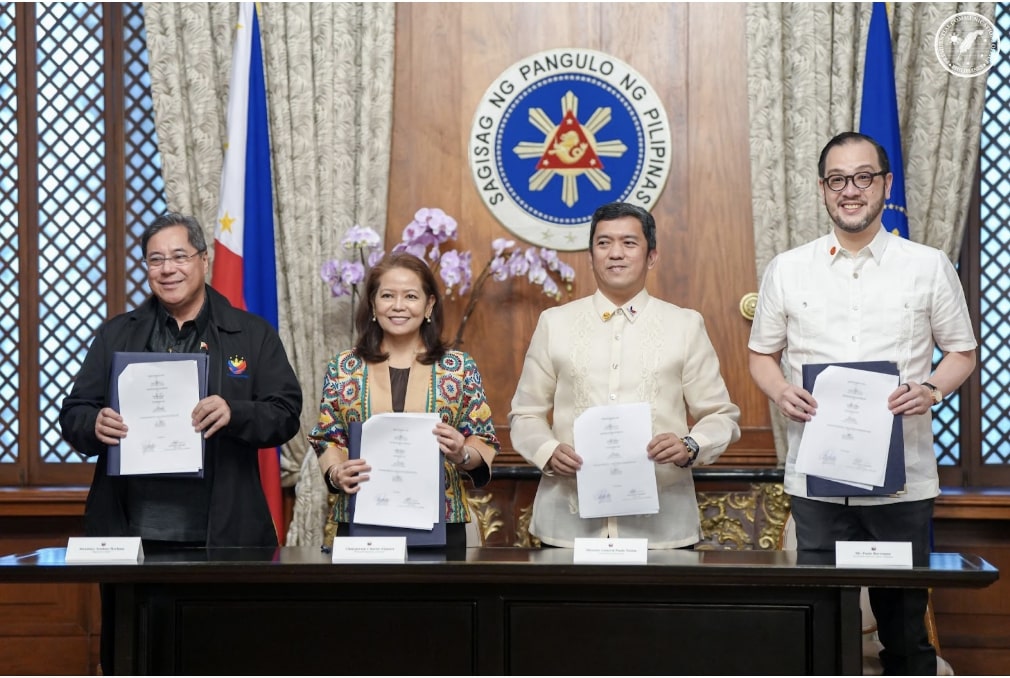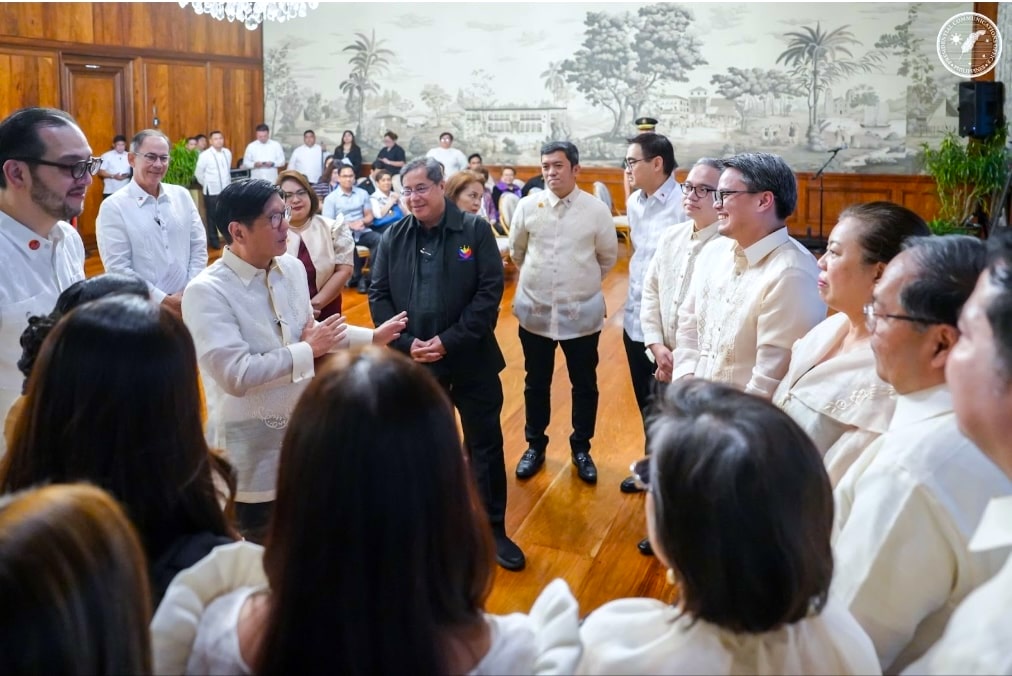President Ferdinand Marcos Jr, PSAC Lead Convenor and Aboitiz Group President & CEO Sabin Aboitiz, PSAC–Health Sector Lead and Ayala Healthcare Holdings President & CEO Paolo Borromeo, and fellow PSAC–Health members convene at Malacañang Palace for the MOU signing with the FDA and PRC, launching the Regulatory Sandbox Pilot Program to improve access to quality healthcare. (Photo from PCO)
The Private Sector Advisory Council–Healthcare Sector (PSAC-Health), in partnership with the Food and Drug Administration (FDA) and the Professional Regulation Commission (PRC), launched the Regulatory Sandbox Pilot Program on Flexible Supervision of Pharmacies, which aims to improve access to quality medicines in underserved areas. This initiative underscores the private sector’s commitment to supporting the government’s efforts to accelerate innovation and improve healthcare.
President Ferdinand Marcos Jr. witnessed the signing of the Memorandum of Understanding (MOU) at Malacañang Palace, reaffirming government support for evidence-based, innovation-driven reforms that strengthen healthcare delivery.
The program introduces flexible models of pharmacist supervision—including telepharmacy and remote oversight—to help address the country’s long-standing shortage of practicing community pharmacists. It will be implemented in selected underserved areas in Luzon, Visayas, and Mindanao under the joint stewardship of the FDA and the Professional Regulatory Board of Pharmacy (PRB-PHA), with participation from leading private pharmacies.
“By enabling pharmacies to operate with alternative supervision mechanisms, we can expand access to medicines, improve operational efficiency, and support the evolving role of pharmacy professionals in our healthcare ecosystem,” said Paolo Borromeo, PSAC Healthcare Sector Lead.
Based on PRC data, the Philippines currently has about 64,000 pharmacists with a valid professional identification card. However, the country faces a significant shortage of community pharmacists—an estimated 30,000 active practitioners nationwide versus a projected demand of 57,500. The one-to-one pharmacist-to-pharmacy licensing requirement under Republic Act 10918 (Pharmacy Law) has further constrained the opening of new pharmacies, particularly in remote areas.
To address these limits, the Regulatory Sandbox Pilot will allow a single licensed pharmacist to oversee multiple pharmacies within defined geographic limits, using secure, FDA-approved telepharmacy platforms for remote supervision and consultations. It will also expand—and closely supervise—the role of pharmacy assistants to support licensed pharmacists in delivering essential medicines and services.

Capacity building will also be a major component of the initiative, with training and compliance support provided to participating pharmacies and personnel. The FDA and PRB–PHA will provide regulatory oversight and technical guidance, while participating pharmacies will shoulder usual operational, compliance, and training-related costs.
Beyond the pilot program, PSAC’s Health Sector Group continues to collaborate with government partners to strengthen healthcare delivery, accelerate the implementation of Universal Health Care, and foster innovation through public-private partnerships.

